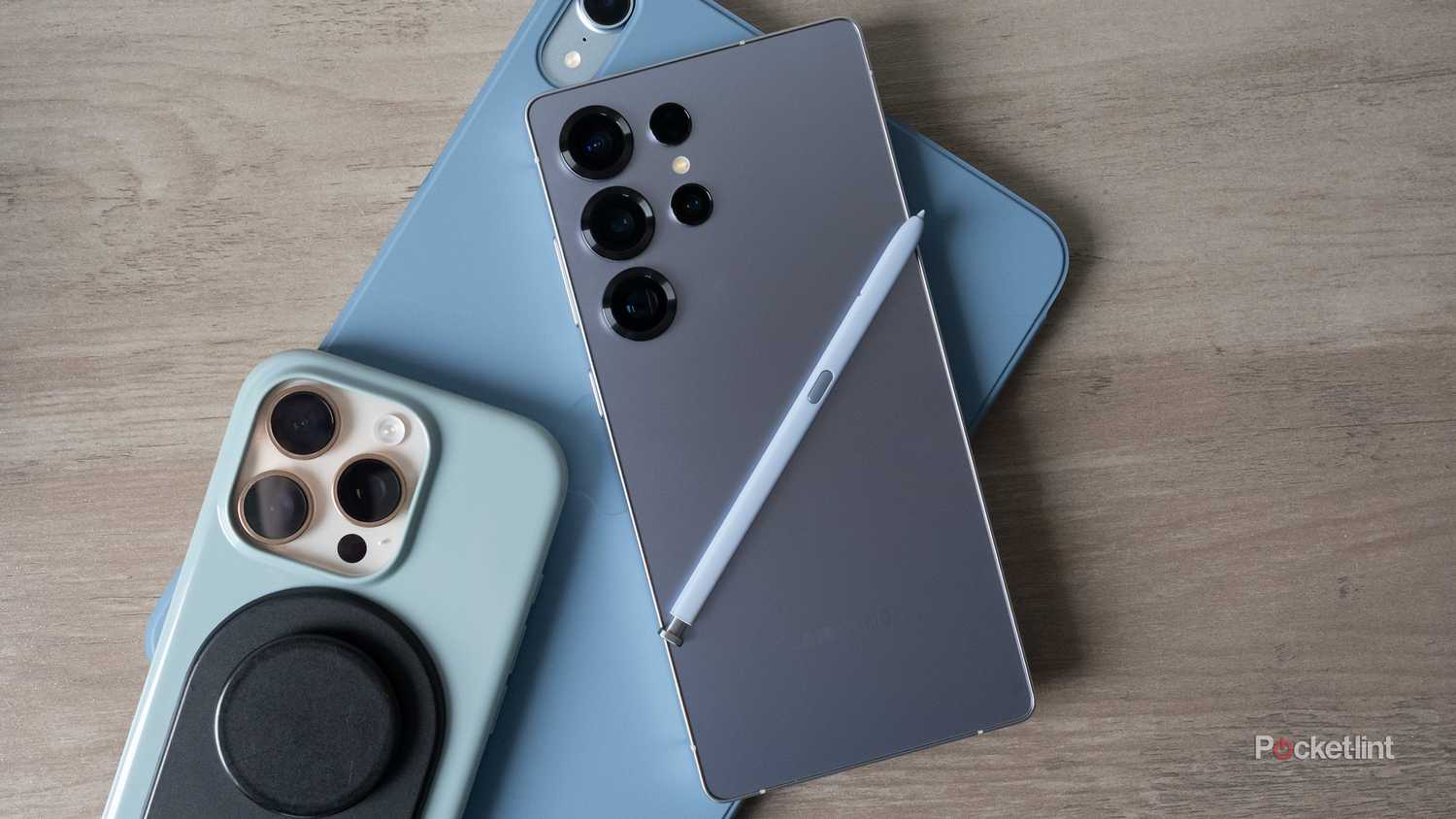Abstract
- MicroSD playing cards had been as soon as ubiquitous within the flagship Android cellphone house.
- Over time, numerous components got here collectively to usher ultimately of the microSD’s cellular reign.
- Listed below are 5 components that performed a key function on this specific improvement.
Almost throughout the board, the once-ubiquitous microSD card slot has vanished from the premium smartphone surroundings. Beforehand a staple of the Android handset expertise, this small and unassuming slot as soon as allowed for limitless, modular, and reasonably priced aftermarket cupboard space growth.
Whereas not each {hardware} maker traditionally supported the microSD customary on their cellular devices (I am you, Apple and Google), you might all the time depend on sturdy help from the likes of HTC, LG, Motorola, Sony, Samsung, and numerous different OEMs. Then, sooner or later, microSD compatibility inexplicably went the best way of the dodo.
Whereas a fairly stable collection of mid-range phones proceed to bear the torch of easy storage growth to this present day, the one main Android cellphone model that also ships a microSD card slot on a flagship system is Sony with its Xperia line.
With this in thoughts, listed here are 5 components that performed a decisive function in ushering in right this moment’s post-microSD card slot smartphone world.
Velocity
Inner storage is quicker
Objectively talking, the trendy UFS-based flash storage used inside premium smartphones is quicker than what generic exterior microSD playing cards are able to offering. For reference, an ordinary microSD card is most comparable in pace to the eMMC storage expertise discovered on cheaper cellular devices, which is kind of a bit slower than even previous-generation variations of UFS.
Now, there does exist a newer microSD Express standard, notably adopted by Nintendo in its recently-released Swap 2 online game console, that brings with it close to SSD-like speeds with its use of PCIe and NVMe interface applied sciences and its further set of pins.
Nevertheless, microSD Specific is dearer to implement into a tool than its vanilla predecessor is, and there are far fewer microSD Specific card configurations obtainable in the marketplace to select from. With Specific, SD playing cards have acquired the learn and write pace increase that they’ve desperately wanted for a while now — however do not anticipate the subsequent Galaxy S or Pixel to play good with them.
Greed
The countless pursuit of earnings
The explanation why I do not anticipate next-generation flagship smartphones to embrace the speedy microSD Specific customary boils right down to company greed. There’s little incentive for handset makers to offer customers with a fast and simple improve path within the type of exterior storage growth. Except for Samsung, which occurs to fabricate first-party microSD and microSD Specific playing cards of its personal, the likes of Google et al. solely stand to lose earnings to Lexar, SanDisk, and different established storage manufacturers.
Apple, conversely, has recognized this actuality from the very starting, and different cellphone makers have lastly caught on: in case you can upsell your clients with costly inner storage upgrades on the preliminary time of buy, you stand to learn monetarily.
Options
Bigger inner storage SKUs, streaming, and the prevalence of cloud storage
Even with microSD flying within the face of company incentive constructions, many Android cellphone makers had historically supplied microSD slots on their high-end smartphones out of lack of viable alternate options. Till just lately, inner cellphone capacities had been a lot smaller than they’ve develop into up to now three-to-five years, and so microSD was a fast and simple device for softening the blow of storage claustrophobia.
Elsewhere, each cloud storage and multimedia streaming providers have expanded considerably in reputation, attain, and acceptance inside the client tech house. This has depressed the demand for locally-available storage, as most of us take heed to music, binge-watch TV, and retrieve doc information from a distant server someplace far off and geographically distant.
Safety
Your knowledge is safer (presumably)
On the one hand, eradicating the microSD card slot successfully removes an assault vector that might be leveraged by unhealthy actors. For instance, if somebody had been to steal your cellphone, they would not be capable to merely take away a bodily microSD card if one is not obtainable to be eliminated within the first place. This is among the fundamental arguments in favor of the removing of bodily SIM card slots, and the identical logic applies with the microSD customary.
However, cloud storage options are removed from an ideal various from a safety standpoint, and there are very actual considerations on the market over how delicate consumer knowledge is saved and retrieved, and whether or not it could be accessible to interceptors, company workers, and authorities companies alike.
Construct
One much less shifting half to fret about
Within the ever-ending quest to consolidate the bodily construct of our cellular tech devices, eradicating the microSD card slot is among the many sirens which can be laborious to disregard. The removing of the SD slot from a cellphone reduces the danger of mechanical failure by eliminating a shifting half from the image. It additionally makes it simpler to seal a unit from water and dirt ingress, and it leaves extra inner house inside the system’s chassis for different elements.
We’re nonetheless a methods off from, say, eradicating the USB-C port from the smartphone image, however I reckon it is solely a matter of time till it happens. In any case, we have already waved goodbye to the likes of the three.5mm headphone jack, the IR blaster, detachable batteries, LED standing indicator lights, and extra all within the title of simplicity and product consolidation. If even the venerable microSD card slot is not secure from disregard, then maybe nothing is.
USB-C
The unlikely return of microSD
Talking of USB-C, its emergence, in a roundabout method, has re-introduced the flexibility to attach exterior storage merchandise like microSD playing cards to our trendy smartphones, fully sidestepping the necessity for devoted inner slots. Sure, plugging a USB-C hub, dock, or dongle is not as elegant as having a slot or tray constructed into the cellphone itself, however this turns into much less of an issue if you have in mind trendy options like this Aiffro P10 Magnetic Portable SSD, which streamlines connectivity by way of intelligent use of magnets.
With the up-and-coming nature of smartphone desktop modes in the Android space, I invision a micro SD card Renaissance within the type of plugging a cellphone right into a dock, which then plugs into an exterior monitor, thereby offering further storage and energy to the unit. On this identical method, any variety of SD playing cards, USB thumb drives, SSDs, and even HDDs will be capable to stay on within the cell phone period, with docking being its facilitator.
Trending Merchandise

Thermaltake V250 Motherboard Sync ARGB ATX Mid-Tow...

Sceptre Curved 24-inch Gaming Monitor 1080p R1500 ...

HP 27h Full HD Monitor – Diagonal – IP...

Wi-fi Keyboard and Mouse Combo – Full-Sized ...
















